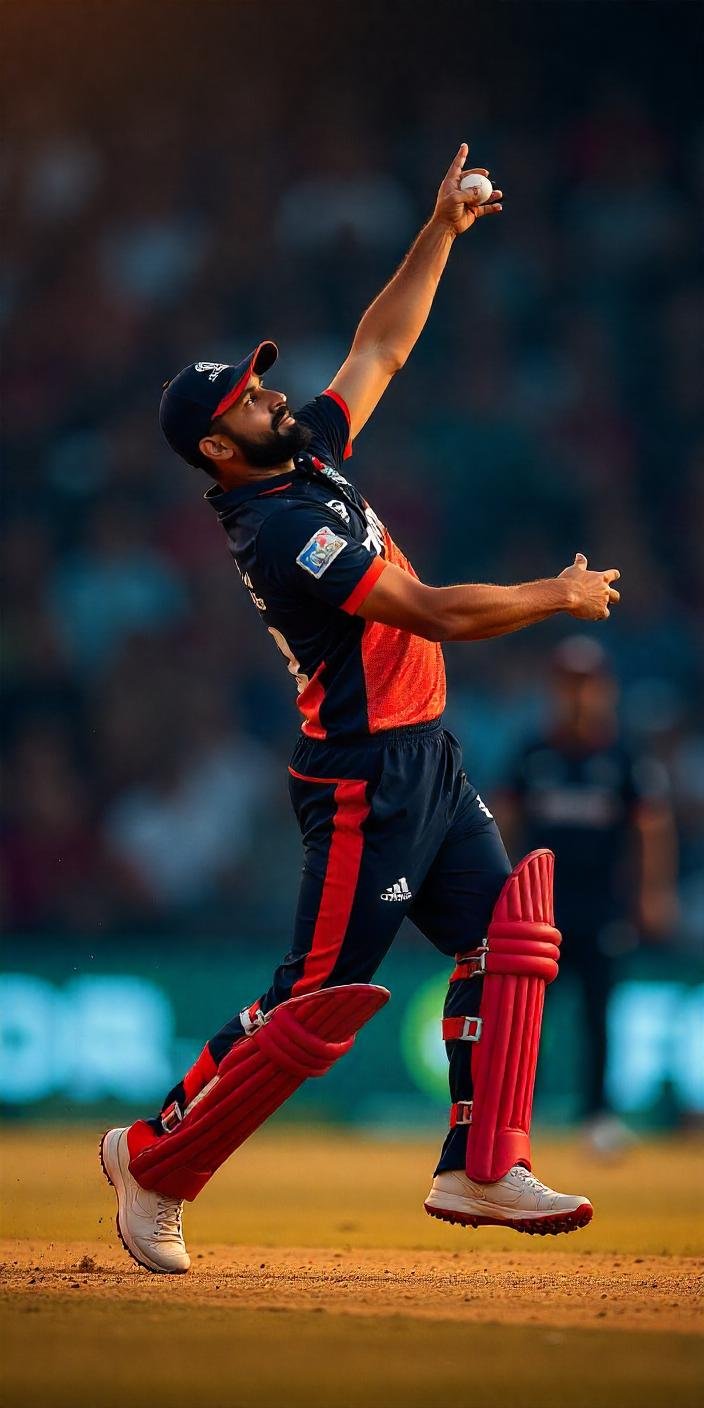
The International Paralympic Committee’s (IPC) Evolution and History
With a rich and illustrious past, the International Paralympic Committee (IPC) has grown from modest beginnings to become a worldwide governing body committed to advancing equality and excellence in parasports. The IPC, the main body behind the Paralympic Games, has been instrumental in reshaping sports for athletes with disabilities and creating a competitive atmosphere that allows them to participate at the highest levels. This article explores the pivotal events and historical turning points that have shaped the IPC’s history and highlights the important contributions it has made to the fields of disability activism and sports.
The IPC’s Inception: An Agenda for Inclusive Sports
On September 22, 1989, the International Paralympic Committee (IPC) was formally founded in Germany’s Düsseldorf. For para sports, a new era began at this decisive moment. The need for a centralized organization capable of supervising the growth and administration of parasport activities worldwide led to the establishment of the IPC. raising the profile of parasports internationally.
The Paralympic Movement: Expansion and Worldwide Effect
The breadth and influence of the Paralympic Movement expanded in tandem with the growth of the IPC. The IPC’s initiatives to advance accessibility and exclusivity in sports have had a significant impact on attitudes regarding disability in society at large as well as in the sports industry. The Paralympic Games have come to represent tenacity, willpower, and the capacity of the human spirit to triumph against adversity.

The IPC has put forth a great deal of effort over the years to guarantee that the Paralympic Games are conducted in accordance with the same rules as the Olympic Games. Because of this dedication to quality, the Games have become known and respected as one of the biggest athletic events in the world. The commitment of the IPC Prior to the IPC’s establishment, numerous committees and organizations were in charge of different facets of parasports, which resulted in a disorganized and uneven approach.
Representatives from 42 nations came together to form the IPC because they had the same goal of advancing sports for athletes with disabilities. The founding members understood the need for establishing a company that could oversee the Paralympic Games’ operations while also fighting for the inclusion and rights of athletes with disabilities in society.
Early Difficulties and Successes
The IPC had many difficulties in its early years, such as little money, low visibility, and the requirement to create a well-coordinated organizational structure. The IPC’s leadership persisted in its dedication to advancing parasports and guaranteeing that athletes with disabilities have access to competitive opportunities in spite of these challenges.
The successful staging of the 1992 Summer Paralympics in Barcelona, Spain, was one of the IPC’s early victories. Since it was the first time, Paraprofessional has also sparked the creation of brand-new sports and the modification of already-existing ones, giving athletes with disabilities a multitude of competition options.
Significant Events in IPC History

The Paralympic Movement and the IPC have evolved through a number of significant turning points:
1999: The IPC Classification Code was introduced. A vital framework known as the Classification Code was developed by the IPC. It classifies athletes according to the kind and severity of their disability, ensuring fair competition. Enforcing this code has been crucial to preserving parasports’ integrity.
2001 saw the establishment of IPC Headquarters in Bonn, Germany. By establishing a permanent headquarters in Bonn, the IPC was able to effectively coordinate and administer its global operations from a solid base of operations.
2003: Initially, the Olympic Games were hosted in the same host city as the Olympic Games, it was a historic occasion for the Paralympic movement. The Barcelona Paralympics showcased competitors’ physical abilities and set new benchmarks for the planning and implementation of the Gamesmanship Athletics World Championships: The IPC hosted the first-ever Athletics World Championships, thereby increasing the number of elite competition chances for athletes with disabilities.
2006 saw the establishment of the Agitators Foundation by the IPC, a development arm dedicated to aiding Paralympic athletes and disseminating Paralympic ideals globally. The foundation has been instrumental in boosting para-sports participation, particularly in poorer nations.
2012: London Paralympic Games With record-breaking media coverage and high levels of athlete and spectator participation, the London 2012 Paralympic Games marked a turning point for the Paralympic Movement.
The Continual Goals of the IPC Are Advocacy, Innovation, and Inclusion
The International Paralympic Committee is still at the forefront of advocating for accessibility and inclusion in sports today.The goal of the IPC is to advance the rights of people with disabilities through a wide range of projects, that go beyond the Paralympic Games. Through collaborative efforts with diverse entities such as governments and organizations, the IPC promotes the elimination of obstacles impeding the complete integration of individuals with disabilities into society.
Innovation continues to be central to the IPC’s approach. The committee is always looking for innovative ways to improve the Paralympic experience for competitors and fans alike. This entails supporting initiatives to make the Games more accessible to a worldwide audience as well as technology developments that help athletes with disabilities perform better.
The Paralympic Movement’s Future
In the future, the IPC wants to make sure that the Paralympic Movement keeps expanding and changing. Three main areas of attention are continuing to promote the ideals of exclusivity, equality, and respect; reaching out to neglected communities with para sports; and raising the profile of para-athletes. In order to solve the particular difficulties experienced by athletes with disabilities, such as funding, equipment, and training facilities access, the IPC is also dedicated to collaborating with other organizations.
The International Paralympic Committee has left a record of invention, tenacity, and steadfast commitment to the advancement of athletes with disabilities.Future athletes and advocates will undoubtedly draw inspiration from the IPC as it continues to grow, championing the movement towards a more inclusive society.
The IPC’s Function in Fostering Social Change and Global Awareness
The International Paralympic Committee (IPC) has had a significant impact on changing attitudes about disability around the world in addition to being a catalyst for change in the sports industry. Through exhibiting the remarkable skills of para-athletes, the IPC has dispelled misconceptions and stimulated a more extensive discourse regarding the possibilities and entitlements of people with disabilities. This impact goes beyond the sports arena, influencing national and international politics as well as societal transformation.

Education and Advocacy: The Expanded Purpose of the IPC
The IPC has taken a holistic approach to lobbying, education, and awareness, going beyond just staging the Paralympic Games. The IPC strives to demolish barriers and educate the public through its many programs and projects to be inclusive and to fight for the rights of people who are disabled. These initiatives are vital to the advancement of a society in which all people, without regard to physical or mental disabilities, are able to fully participate.
The Agitators Foundation’s global outreach projects, which offer guidance, materials, and assistance to athletes and sports organizations in underdeveloped nations, are among the IPC’s most important educational endeavors. The aforementioned projects aim to enhance community empowerment, augment parasports participation, and propagate the Paralympic ideals of bravery, tenacity, motivation, and parity.
Collaborations and Partnerships: Broadening the Paralympic Movement’s Influence
Strategic alliances and cooperative efforts have been vital to the Paralympic Movement’s development and success. The IPC has established partnerships with other entities, such as international business sponsors, national governments, the Olympic Committee (IOC), and non-governmental organizations (NGOs). These collaborations have played a crucial role in supplying the infrastructure, finance, and resources required to sustain parasports’ ongoing growth.
Furthermore, the partnership between the IPC and the IOC has had a particularly positive effect, guaranteeing that the Paralympic Games take place in tandem with the Olympic Games and receive the same degree of organizational assistance and publicity. The Paralympic Games are now regarded as a top international sporting event because to this relationship.
Using the Paralympic Games to Promote Social Change
The Paralympic Games serve as a potent forum for social change in addition to being a competition. Every iteration of the Games strives to highlight the tenacity and perseverance of para-athletes, who persistently push the boundaries of what’s feasible.Audiences all throughout the world are moved by the athletes’ tales, which encourage people to reevaluate how they view ability and disability.
The Paralympic Games’ prominence and influence have raised awareness of the rights of people with disabilities and aided in the implementation of laws that support inclusion and accessibility in a number of fields, such as public infrastructure, work, and education. The creation of inventions and adaptable technology that raise the standard of living for those with impairments has also been aided by the Games.

Opportunities and Challenges: The IPC’s Future Path
Although the IPC has made great progress in supporting parasports and fighting for the rights of people with impairments, there are still issues that need to be resolved. It will always be a top priority to make sure that all athletes, no matter where they live or their financial situation, have access to the tools and assistance they require to compete at the highest level. Furthermore, the IPC has to keep navigating the challenges of running the Paralympic Games in a world that is changing quickly. The planning and execution of the games can be impacted by a number of circumstances, including political unpredictability, economic volatility, and public health emergencies.
These difficulties do, yet, also offer chances for development and innovation. The IPC is in a good position to make use of cutting-edge innovations in digital media and virtual reality to improve the Paralympic Games experience for competitors and fans alike. These technological advancements could raise the accessibility of the Games, making the Paralympic Movement more accessible and inspiring to a wider global audience.
In conclusion, the IPC’s enduring legacy
The International Paralympic Committee is still steadfast in its mission to advance social change, excellence, and exclusivity as it looks to the future. The IPC has left behind a legacy of empowerment and transformation, exemplifying the ability of sport to bring people together, challenge preconceptions, and spur advancement. The vision and tenacity of the IPC’s founders, as well as the innumerable others who have supported its purpose throughout the years, are responsible for the Paralympic Movement’s ongoing growth and success.
The journey of the IPC is far from over. As it keeps changing and adjusting to new difficulties, without a doubt, the organization will continue to lead initiatives to build a more inclusive society where everyone, regardless of ability, has the chance to realize their full potential.
The International Paralympic Committee (IPC) is dedicated to advancing social change, excellence, and inclusivity. Through its enduring legacy, the IPC has empowered individuals and transformed perceptions, showcasing the unifying power of sports and driving progress. Thanks to the vision and determination of its founders and countless supporters, the Paralympic Movement has experienced continuous growth and success. As the IPC adapts to new challenges, it remains committed to fostering an inclusive society where every individual, regardless of ability, can achieve their utmost potential.













Leave a Reply